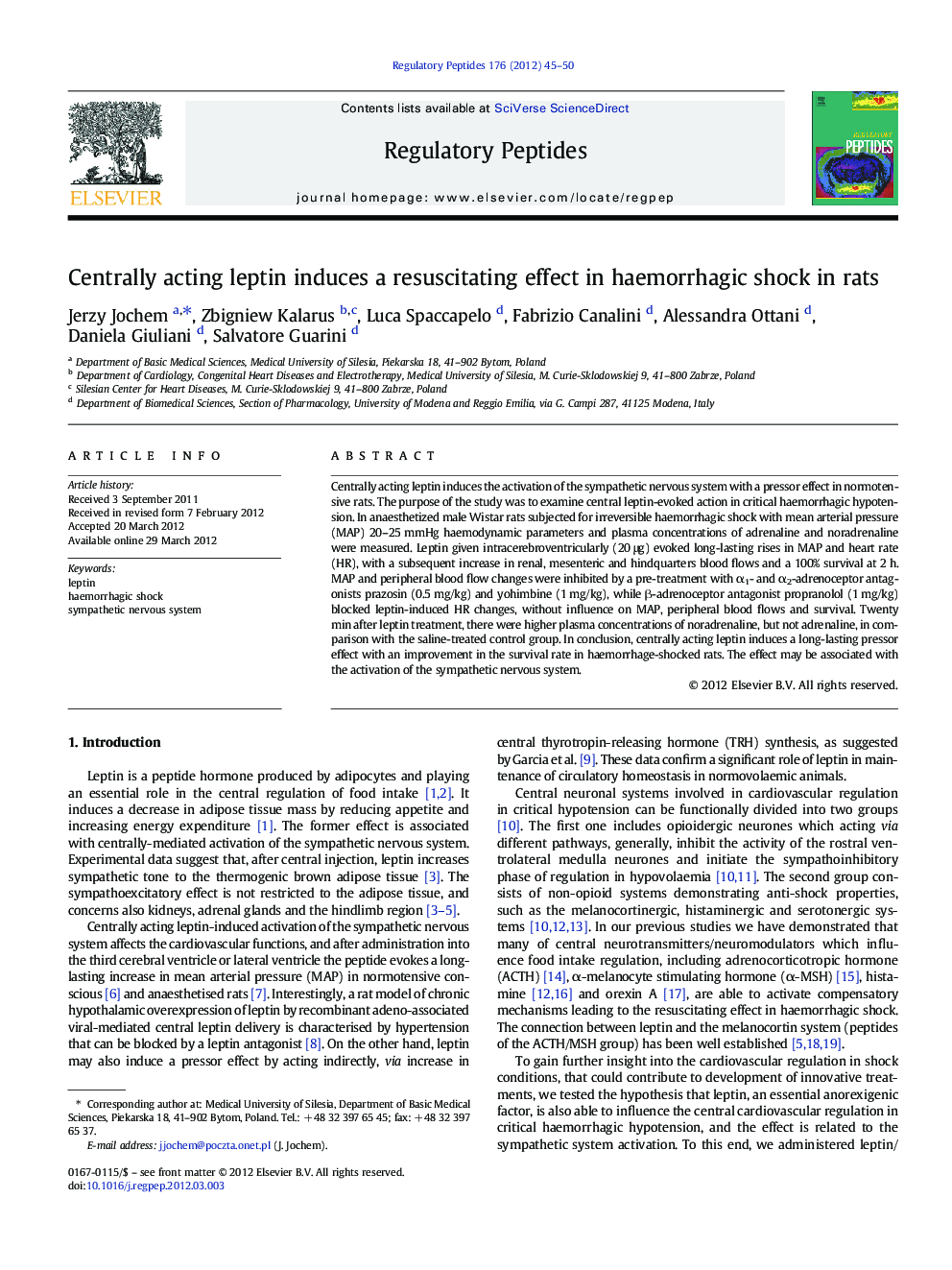| Article ID | Journal | Published Year | Pages | File Type |
|---|---|---|---|---|
| 2022585 | Regulatory Peptides | 2012 | 6 Pages |
Centrally acting leptin induces the activation of the sympathetic nervous system with a pressor effect in normotensive rats. The purpose of the study was to examine central leptin-evoked action in critical haemorrhagic hypotension. In anaesthetized male Wistar rats subjected for irreversible haemorrhagic shock with mean arterial pressure (MAP) 20–25 mmHg haemodynamic parameters and plasma concentrations of adrenaline and noradrenaline were measured. Leptin given intracerebroventricularly (20 μg) evoked long-lasting rises in MAP and heart rate (HR), with a subsequent increase in renal, mesenteric and hindquarters blood flows and a 100% survival at 2 h. MAP and peripheral blood flow changes were inhibited by a pre-treatment with α1- and α2-adrenoceptor antagonists prazosin (0.5 mg/kg) and yohimbine (1 mg/kg), while β-adrenoceptor antagonist propranolol (1 mg/kg) blocked leptin-induced HR changes, without influence on MAP, peripheral blood flows and survival. Twenty min after leptin treatment, there were higher plasma concentrations of noradrenaline, but not adrenaline, in comparison with the saline-treated control group. In conclusion, centrally acting leptin induces a long-lasting pressor effect with an improvement in the survival rate in haemorrhage-shocked rats. The effect may be associated with the activation of the sympathetic nervous system.
► Effects of centrally-acting leptin in a rat model of irreversible haemorrhagic shock. ► Leptin-induced pressor effect with increases in peripheral blood flows and survival. ► Inhibition of haemodynamic changes by α1- and α2-adrenoceptor antagonists. ► Increased plasma concentrations of noradrenaline after leptin treatment. ► Leptin-evoked resuscitating effect as a result of the sympathetic system activation.
